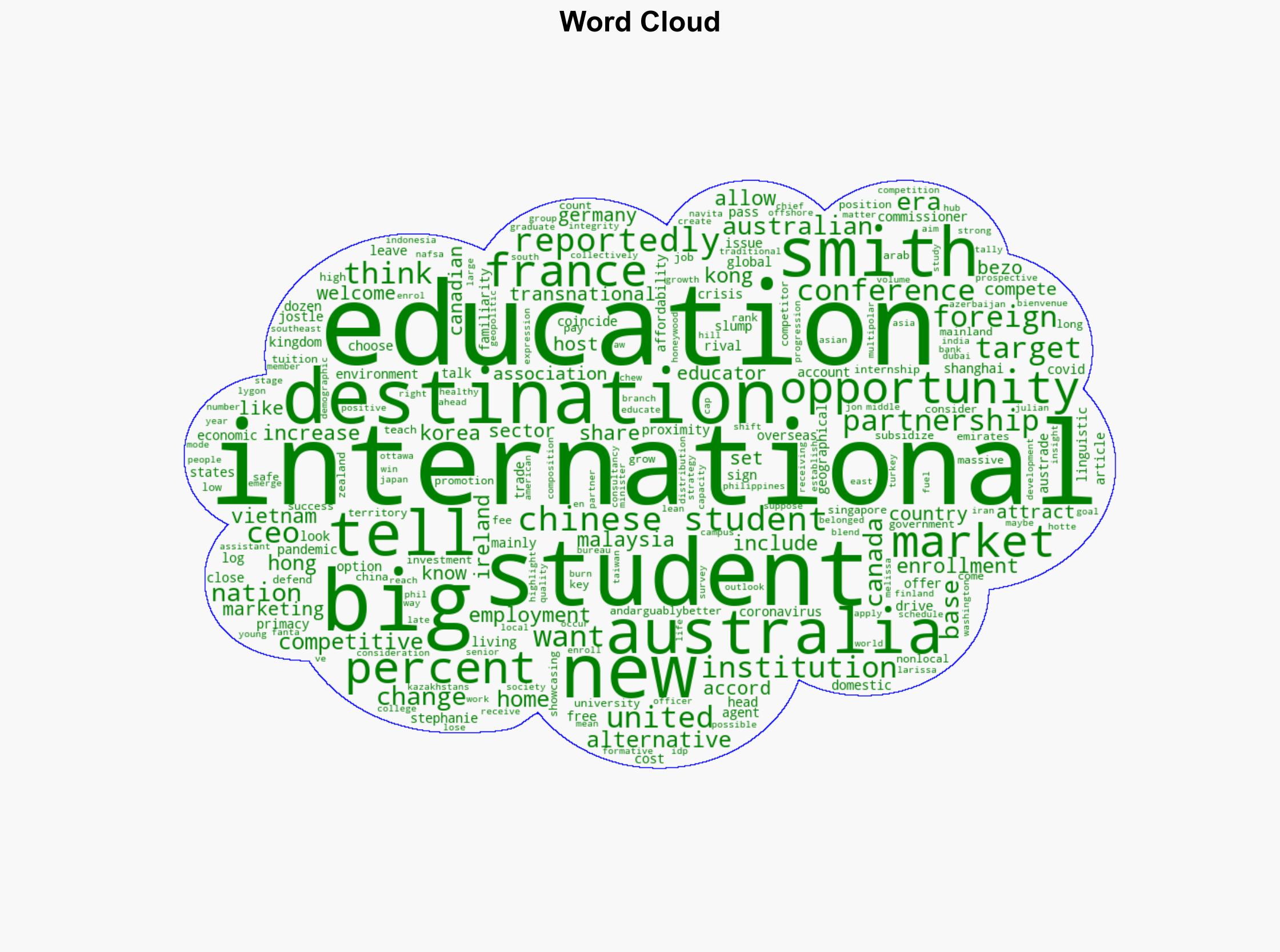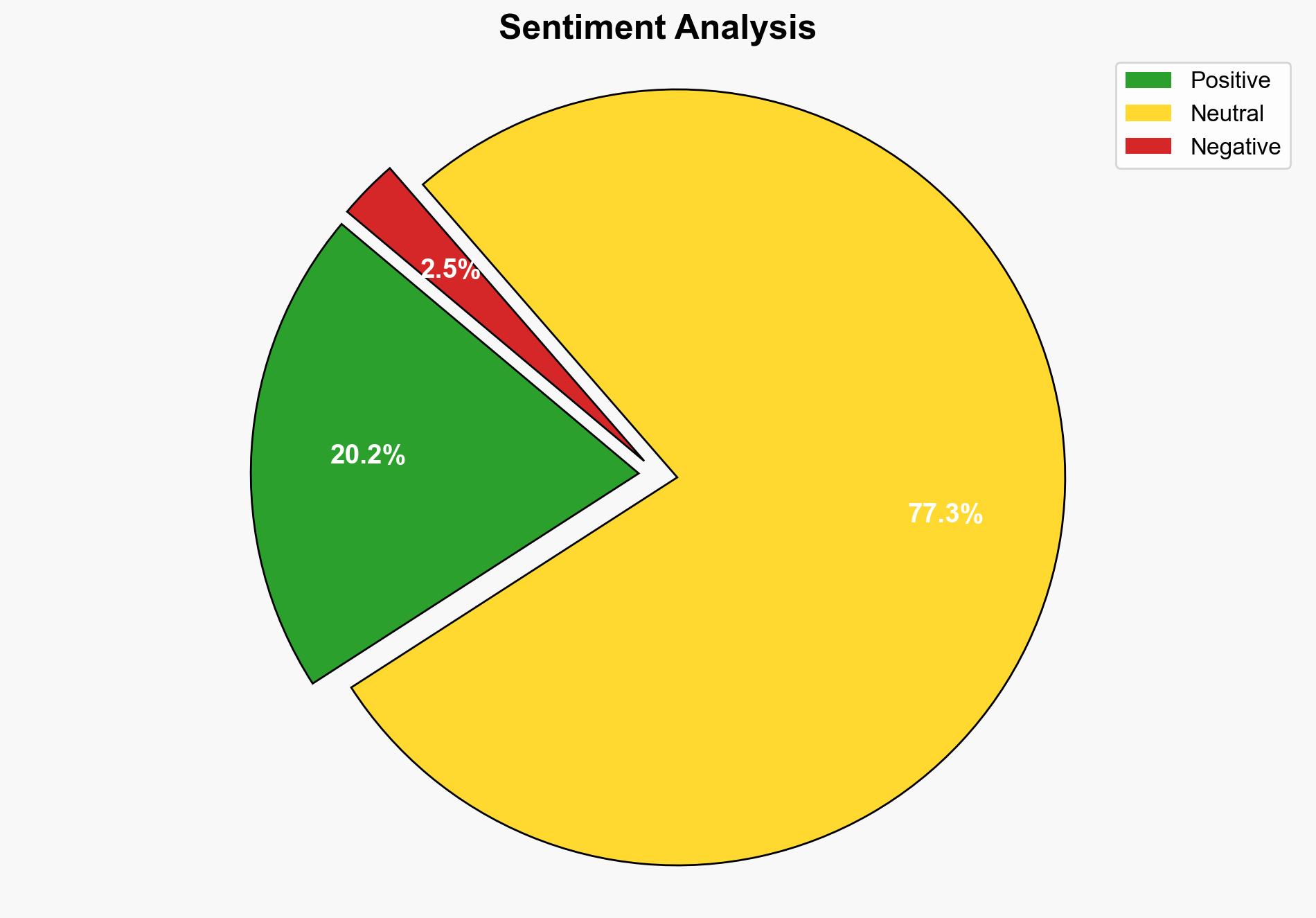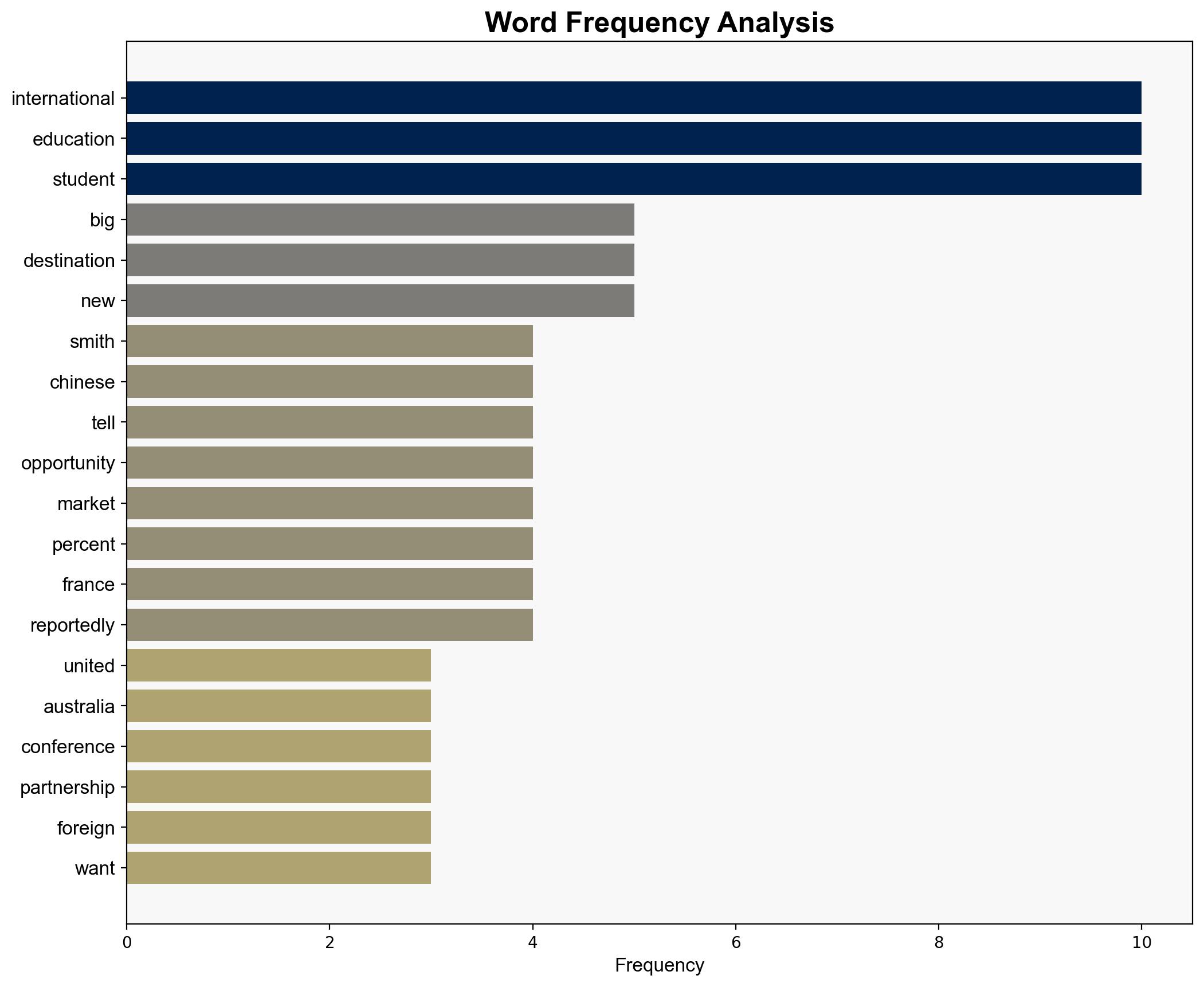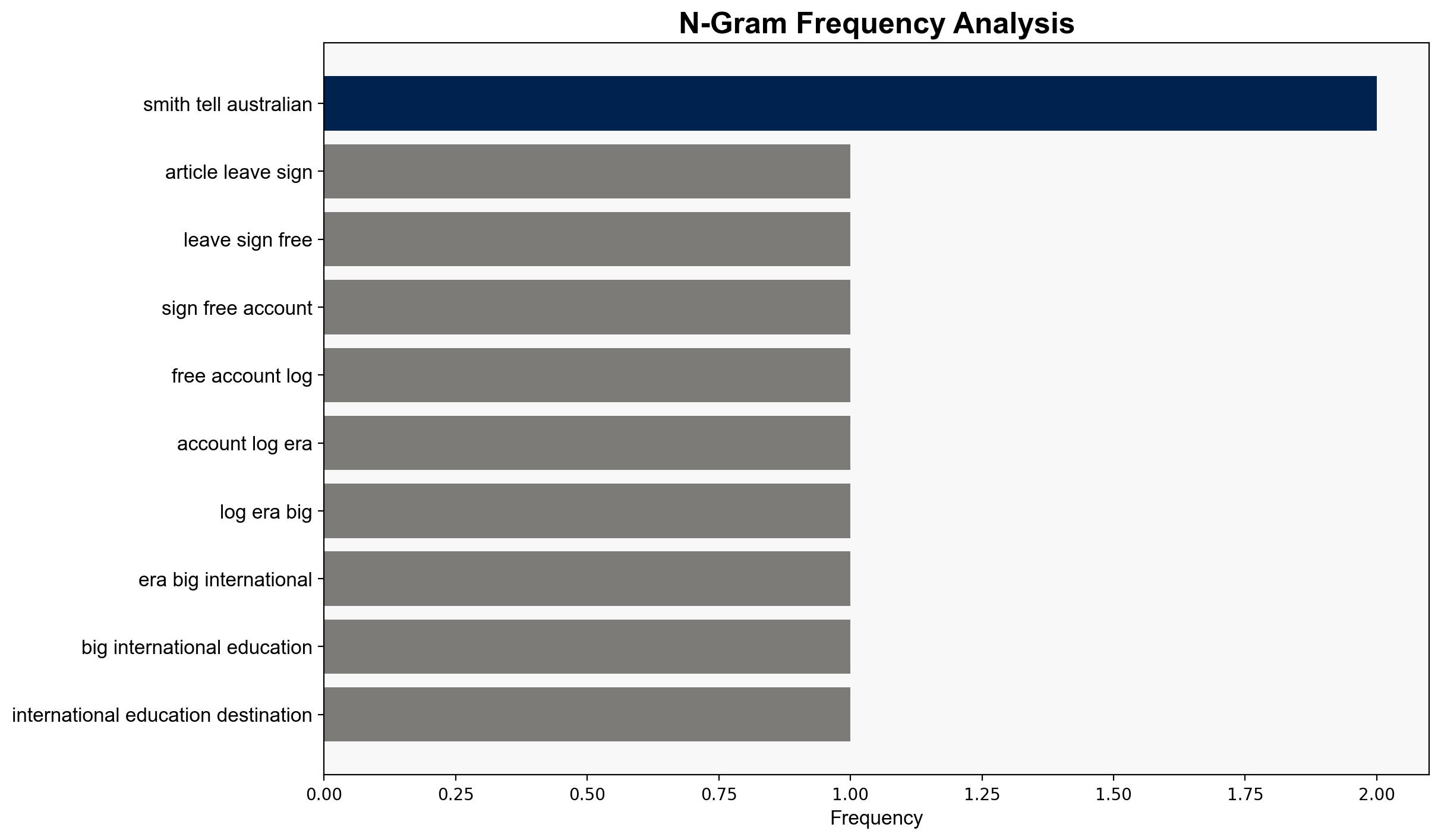Big 4 Becomes Big 14 in Dominating International Education – Inside Higher Ed
Published on: 2025-10-23
Intelligence Report: Big 4 Becomes Big 14 in Dominating International Education – Inside Higher Ed
1. BLUF (Bottom Line Up Front)
The international education landscape is undergoing a significant transformation, with emerging markets challenging the traditional dominance of the Big 4 (United States, United Kingdom, Australia, and Canada). The most supported hypothesis suggests a shift towards a multipolar education sector driven by affordability, proximity, and employment opportunities. Confidence Level: Moderate. Recommended action includes strategic partnerships and diversification of educational offerings to maintain competitiveness.
2. Competing Hypotheses
Hypothesis 1: The traditional Big 4 will maintain their dominance in international education due to established reputations, infrastructure, and continued demand from Chinese students despite emerging competition.
Hypothesis 2: Emerging education markets will significantly erode the Big 4’s market share by offering more affordable, geographically proximate, and employment-friendly options, appealing to cost-conscious students.
Using ACH 2.0, Hypothesis 2 is better supported due to current trends in affordability concerns, economic challenges, and the strategic initiatives of emerging markets to attract international students.
3. Key Assumptions and Red Flags
Assumptions:
– Hypothesis 1 assumes that the Big 4’s established reputation will outweigh cost and proximity factors.
– Hypothesis 2 assumes that students prioritize affordability and employment opportunities over institutional prestige.
Red Flags:
– Potential bias in data from education conferences promoting emerging markets.
– Lack of comprehensive data on student satisfaction and long-term outcomes in emerging markets.
4. Implications and Strategic Risks
The shift towards a multipolar education sector could lead to increased competition, requiring traditional markets to innovate and adapt. Economic risks include potential loss of revenue for the Big 4. Geopolitical risks involve shifts in global influence as educational hubs emerge in new regions. Psychological impacts on students choosing between prestige and practicality could alter traditional decision-making processes.
5. Recommendations and Outlook
- Traditional markets should enhance value propositions through partnerships and innovative programs to retain competitiveness.
- Emerging markets should focus on quality assurance and building international reputations.
- Scenario Projections:
- Best Case: Balanced global education sector with diversified opportunities.
- Worst Case: Significant decline in Big 4 market share, leading to economic downturns in education sectors.
- Most Likely: Gradual shift towards a more multipolar education landscape with increased competition.
6. Key Individuals and Entities
– Stephanie Smith
– Melissa Bank
– Julian Hill
– Larissa Bezo
– Jon Chew
– Phil Honeywood
7. Thematic Tags
international education, market competition, economic strategy, geopolitical shifts





